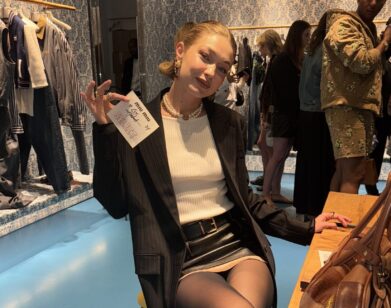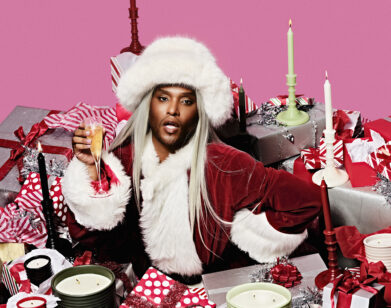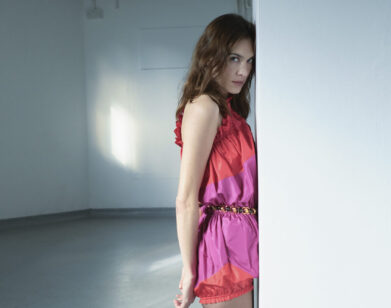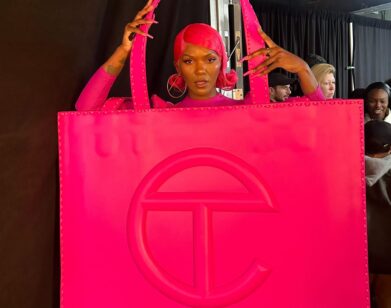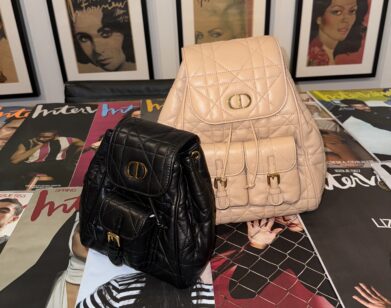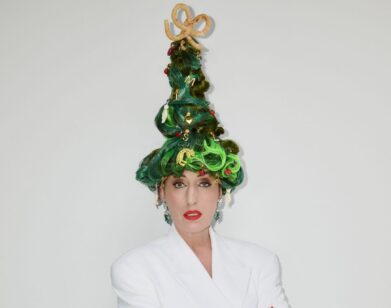Obsession: Baroness Elsa von Freytag-Loringhoven
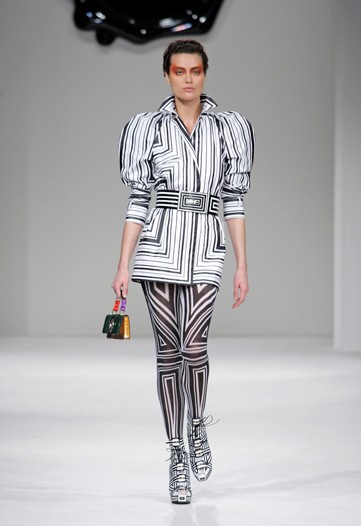
BARONESS ELSA VON FREYTAG-LORINGHOVEN; THE BARONESS’S PORTRAIT OF MARCEL DUCHAMP
Shortly before I graduated high school, my friend Marisa Wallin put on a play about an obscure but influential figure of the Dadaist movement of the 1920s, the avant-garde performer Baroness Elsa von Freytag-Loringhoven. She titled it “YES WE HAVE NO BANANAS” after one of many remarkable poems the Baroness wrote, chronicling the German-born model and artist through several marriages, an intense lesbian affair, and Elsa’s continual struggle with being too absurd to be accepted.
In real life the Baroness married a Baron, trekked through Europe and the United States, and died mysteriously next to her beloved lapdog from a gas leak in Paris in 1927. A self-proclaimed anarchist, she found what she wore, from shower curtain rings as bracelets to postage stamps as beauty marks. She was a living Dada artwork. Her willingness to be ugly and absurd is much of the charm. Here was a lithe, sexually liberated woman, taking flapper-esque fashion and distorting it, wearing tin-can bras or carrying her tiny mangy dog like an accessory to poke fun at upper crust notions of breeding.
RIGHT: BRITNEY MURPHY IN THE NEW YORK TIMES
Although not the most frequently noted Elsa of avant-garde fashion—designer Elsa Schiaparelli, collaborator of both Dali and Giacometti, is endlessly cited as an inspiration by everyone from Dolce and Gabbana to Lanvin—the obscure but influential Baroness Elsa von Freytag-Loringhoven is certainly a worthy peer. Freytag-Loringhoven was to Dadaism what Schiaperelli was to surrealism: a muse, a feminine counterpart, a creator of unwearable fashions and striker of inimitable poses. She fascinated Man Ray and provoked Duchamp: Some say her scatological humor was an inspiration for Duchamp’s Fountain.
SPRING 2009 LOUIS VUITTON;SPRING 2009 MAISON MARTIN MARGIELA
Maybe it’s because the New York Times cast Brittany Murphy as the Dada artist in a 2002 shoot flush with Dolce and Gabbana that the Baroness has been continually over-looked. Both spring and fall drew inspiration from pre-Depression era looks, with Prada’s flapper slips or Louis Vuitton’s bohemian feather-dresses. There was a touch of hysteria, and an awareness of how absurd this decadence seems amidst a worldwide recession. Maison Martin Margiela tackled the same problem with a spring couture collection made entirely of refuse – do we hear shower curtin rustling?
FALL 2009 AGATHA RUIZ DE LA PRADA, SPRING 2009 VIKTOR & ROLF
For fall in Milan, Agatha Ruiz de la Prada took Elsa’s signature birdcage as a design cue. But as I scanned images of Viktor and Rolf’s futuristic spring collection, Marisa stopped me on a particularly graphic, deco-flavored look to remark that V&R had taken a page directly out of the Baroness’ book. Ripe for Hollywood (bio pic, anyone?), the Baroness feels more relevant than ever. Designers might well invoke her for a chance for reinvention—or even the sublime.

